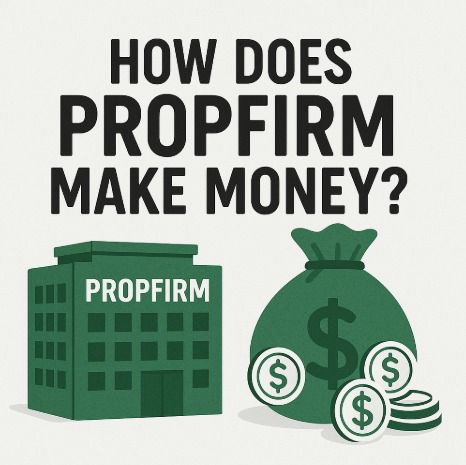Choosing between a broker or joining a proprietary (prop) trading firm is one of the first decisions you are going to make when you start trading. There is an advantage to each option, however, it all depends on how much money you have, how skillful you are and what sort of trader you want to become.
A broker is a way of trading with your own money. You make an account, deposit funds then start trading. You do not have to pay taxes, on the other hand you become personally responsible for everything that goes away from the unit. What this means is, it is only your money that will be put to lose help if your trade goes bad. Fees and commissions are charged by brokers for every trade, and you may also have to put up a lot of money to trade comfortably.
The main difference is that a prop firm has access to their money and not yours. To trade responsibly, you must go through a test or challenge. If you pass you get the funded account and split your profits with them. If a trade goes wrong, they do not lose your own money, as long as you are following their rules.
Capital and Profits
With a broker, you trade with the money you put in. If you deposit $1,000, that is what you trade with. Some brokers offer leverage, but it is limited by your deposit. All profits are yours after fees, but the size of your trades and profits is limited by how much capital you have.
With a prop firm, you can trade a larger account sometimes $10,000 to $200,000 or more after passing an evaluation. You do not need to risk your own savings. Instead, you share profits with the firm. Many firms give traders 70% to 90% of the profits, and top traders can scale up to bigger accounts over time.
Costs and Tools
Normally brokers charge a fee per trade. In addition, you may also be on your own with paying for tools, understanding the data or education. A basic set of tools is free from some brokers, but that support is usually limited.
While there may be a one-time fee to go through the evaluation phase, once funded prop firms will charge no extra trading fees. Not only do they offer modern trading platforms, real time data and access to free training, mentoring and access to their trading community to help you grow.
Risk and Skill
When you trade with a broker you are gambling your own money. Emotions can flare up especially after losses and you cannot have emotions when you are not feeling something. You are at risk management and need discipline to protect your capital.
In the case when you trade with a prop firm, the firm is providing the capital. There are rules you have to follow including limits to daily losses and daily drawdowns. However, if you break those rules, you can get banned from your funded account. However, as far as the rules are concerned, there is nothing to fear for your personal money.
Regardless of the setup, skill and discipline still matter. No doubt, the more strategy and emotional control you have, the more you will succeed, whether you trade on a broker platform or a prop house.
Which One to Choose?
If you have enough money, want full control, and are comfortable taking full responsibility for your trades, a broker could be a good option. Prop firms are aimed better at people who are skilled but do not have much capital, or who prefer structured environment with support and less financial risk.
There is no one way, or it takes no wrong way. The best choice is the one that works with your goals, experience level, and tolerance for risk.




